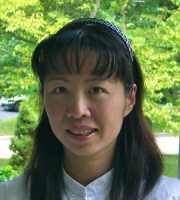17 Dec New Tools Detect Many More Potentially Treatable Cancer Mutations

Dr. Li Ding
MedicalResearch.com Interview with:
Dr. Li Ding PhD
Director, Medical Genomics group
McDonnell Genome Institute
Department of Medicine
Washington University in St. Louis
St. Louis, Missouri
Medical Research: What is the background for this study? What are the main findings?
Dr. Li Ding: Next-generation sequencing technologies have provided unprecedented opportunities for building a comprehensive catalog of point mutations, simple insertion and deletion mutations (indels) and structural variants in human cancers. Although significant progress has been made for documenting these common events through studies from individual research labs and large consortiums, there has been little progress in the discovery of complex indels after the transition from Sanger sequencing to NGS technologies. It is well known in the scientific community that indel detection using short next generation sequencing reads is a challenging problem. Our study, for the first time, directly addresses complex indel detection that has been barely touched in the cancer field. More importantly, our analysis discovered 285 complex indels in cancer genes such as PIK3R1, GATA3, and TP53, revealing an unexpected high prevalence of these events in human cancers.
Medical Research: What should clinicians and patients take away from your report?
Dr. Li Ding: Our analysis of TCGA data identified several druggable, in-frame complex indels in EGFR and KIT. In the era of precision medicine, it will be critical to capture all druggable mutations, including previously overlooked somatic druggable complex indels, in cancer patients.
Medical Research: What recommendations do you have for future research as a result of this study?
Dr. Li Ding: We need to support continuous tool development to detect full spectrum of cancer mutations. Future research will need to pay special attention to those novel types of complex variations responsible for driving cancer development and important for cancer treatment.
Citation:
Systematic discovery of complex insertions and deletions in human cancers
Kai Ye, et al Nature Medicine (2015) doi:10.1038/nm.4002
Published online14 December 2015
Dr. Li Ding PhD (2015). New Tools Detect Many More Potentially Treatable Cancer Mutations
Last Updated on December 17, 2015 by Marie Benz MD FAAD
